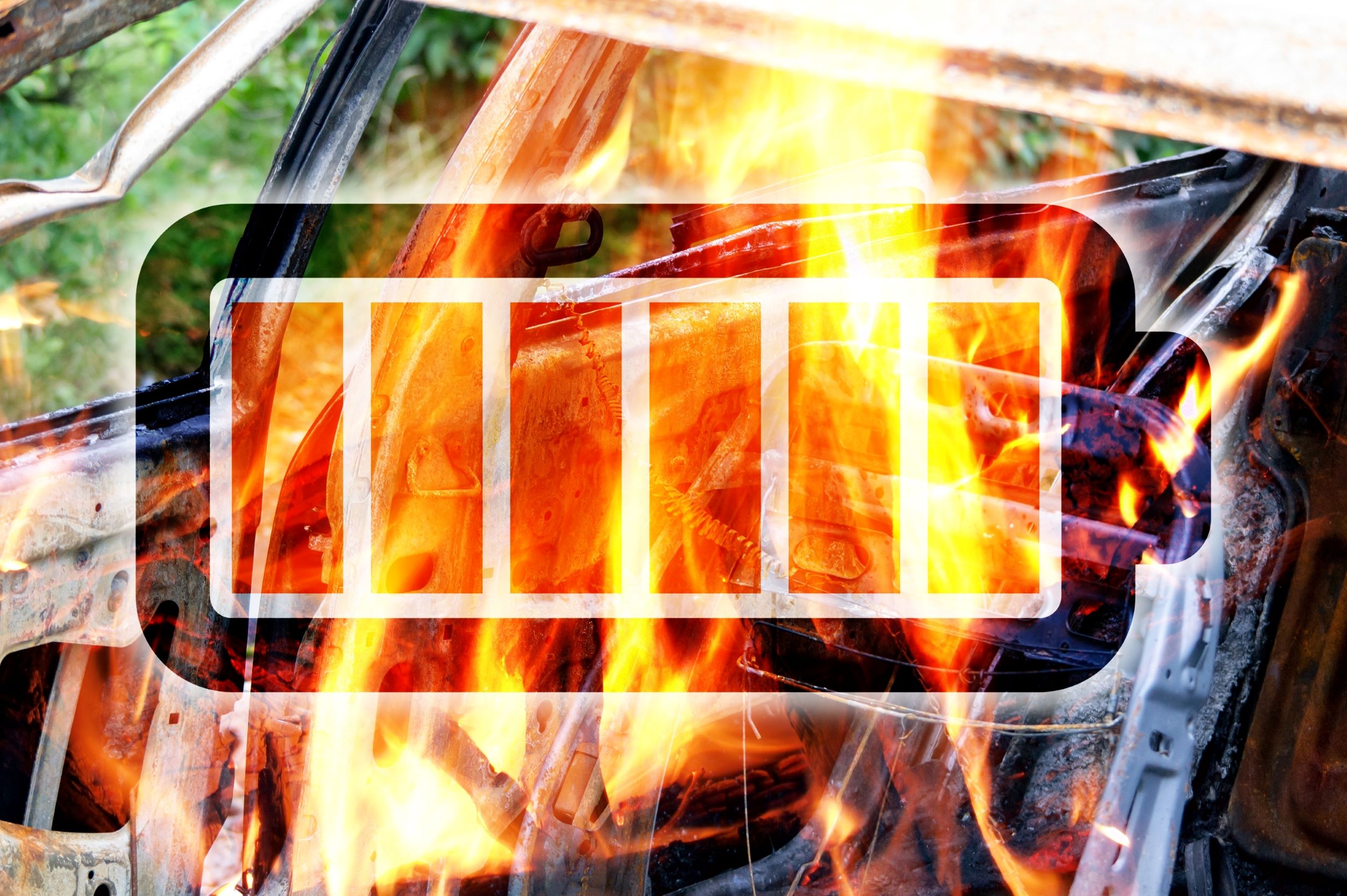There are growing concerns over the increasing risk of product liability claims and litigation arising from lithium-ion (Li-ion) batteries.
As of the end of March 2024, it is estimated there are now over 1,000,000 fully electric cars and around 60,000 electric vans on UK roads and a further 645,000 plug-in hybrids.
In March 2022, approximately 4,000 vehicles were lost as a result of a fire on board the roll-on roll-off car carrier the Felicity Ace. The property damage, resulting from the ship’s sinking with the estimated value of the cargo of vehicles on board, was between £319m ($400m) to £399m ($500m).
According to Bloomberg, Porsche is being sued by Mitsui O.S.K. Lines, which operates the ship; and Allianz, which insured it. The suits claim a faulty Electric Vehicle (EV) made by Porsche ignited the blaze, and that Volkswagen Group – which owns the car brands involved on the ship – didn’t tell Mitsui and Allianz of the “dangers and precautionary measures required to transport an EV.”
Whilst the most significant losses have involved car carriers, the number of fires involving E-scooters, E-bikes and other Li-ion powered devices has increased.
The British Safety Council has highlighted concerns, reporting that since 2020, 10 people in the UK have died from fires linked to Li-ion batteries, and 190 people have been injured. In 2023, firefighters in London fought more than 87 e-bike and 29 e-scooter blazes, a record for the nation’s capital.
The manufacturer, distributor, or retailer of the device containing the lithium battery in a fire incident may be liable for the injuries caused by the explosion.
Li-ion batteries have become the most widely used battery technology in various fields such as automotive, power generation, communications, industry and other applications, including private ones. It has been previously estimated that the global Li-ion battery market will grow by over 30% annually from 2022 to 2030.
If incorrectly handled, stored or transported, the potential hazards from Li-ion battery incidents can be fire, explosion, and ‘thermal runaway’, a rapid self-heating fire that can cause an explosion, as has been seen with a number of incidents on land and at sea.
They can also produce irritating, corrosive or poisonous gases that can cause an explosion in a confined space.
The highest risk of a fire occurring is when a battery is being charged, transported, has been damaged previously – as thermal runaway can occur hours, days or weeks later – or abused from over-charging or continual charging and discharging.
Key advice when charging a Li-ion battery includes:
- Charging of batteries should be completed in a separate building.
- Small size batteries e.g. those used in hand-held scanners, should be charged in a proprietary cabinet, internal to the building.
- Charging of e-bike and e-scooters within residential buildings should be avoided.
It is also important that all Li-ion batteries thought to be faulty, considered to be outside the manufacturers lifespan or showing signs of damage, should be quarantined.
To mitigate the risks presented by Li-ion batteries it is vital to take steps to mitigate against all associated risks, including overheating, fire, explosions and intoxication. A suitable and sufficient fire risk assessment should be undertaken and be subject to regular review. This should cover handling, storage, use and charging, where appropriate, with consideration also given to the requirements of the Dangerous Substances and Explosive Atmospheres Regulation (DSEAR) recognising the potential risk to people from energy-releasing events such as fires, explosions and thermal runaway.
W Denis has a long history in arranging Product Liability Insurance for all types of organisations from start-ups, to global public companies. For a quotation please contact [email protected] or arrange an appointment via [email protected].

Specialist contact
Mark Dutton
Executive Director / Group Head of Broking & Business Development
T. +44 (0) 7831 366 469
Arrange a call back



